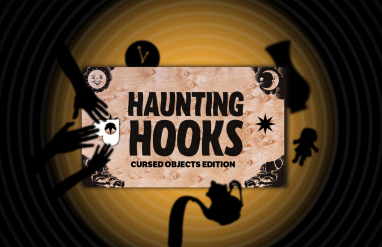Deciphering the language of hype
Language can be used to avoid discussion just as much as it can be used to communicate effectively. For example: the language of public relations. Public-relations representatives often speak for corporate America, politicians, and the media. They know how to avoid topics and how to not answer the hard questions (tweaking language to fit a particular need at a particular time). They’re really quite the wordsmiths, no?
We’re here to provide a guide to help interpret the messages PR reps dress up for public consumption. Here are some words and phrases to look out for when trying to understand public speakers.
Superlatives too good to be true!
Phrases like ground breaking, hotly anticipated, and the leader in are pretty exciting descriptors, and PR reps know their appeal. However, these phrases can be just like oral clickbait: Don’t jump on board just yet. They are often used with a large dollop of license and wiggle room to create some drama and perceived movement (upward, of course). Sometimes, hotly anticipated only pertains to how the developers of the product feel, and the leader might mean in the greater Omaha region. Anything that sounds too good to be true, probably is.
In the PR world, superlatives sell. Weighing the use of a leader against the leader is a typical linguistic maneuver that is effective and safe. As long as there is a bit of truth, “too far” is quite a ways down the road.
Words that will change the world
Terms like paradigm shifts and seismic shifts do not relate to earthquakes when a PR agent says them. Instead, they often describe cultural, industrial, or philosophical changes. PR professionals love to use these phrases to attract attention. Just remember that a paradigm shift can mean something as earth shattering as moving from flat to round-earth theory or as benign as forsaking peanut for almond butter.
Another favorite PR word is synergy, which implies that with just the right teamwork, this message/product/organization will achieve maximum impact and will, perhaps, change the world.
World-changing words like these cackle with energy and positivity as well as a sort of futuristic feel. Not to mention they have likely been well-tested in everything from focus groups to social-media experiments.
The language of avoidance
If a company is embroiled in a high-profile lawsuit, or if a CEO has been accused of bad behavior, beware the language of avoidance. This is a linguistic tactic that politicians love, too. Careful listeners will detect distraction, delay, or deflection in empty messages disguised as information.
Consider these phrases: We are unable at this time to comment/confirm/announce. Sound familiar? We hear these declarations frequently in press conferences. It’s not that they are unable to give the information, but rather, the speaker chooses to avoid offering it. They can do this until an issue gains so much public attention that it demands addressing.
The word ongoing—as in an ongoing investigation, debate, or transition—can offer a convenient cloak of subterfuge. These “ongoing” events magically make it impossible to offer a full statement, and they buy time to craft a response.We/I don’t answer hypothetical questions. This has become a favorite of politicians, and it can be a particularly frustrating response. A solution for this might be to craft the question based on a past event. It’s a little harder to wiggle out of a comment about something that actually took place.We are taking the issue seriously. Though it’s good to know that the “issue”—usually a euphemism for “problem”—is being considered, it’s clear that not much has been done to resolve it. A statement such as, We will no longer sell that product, is inarguably more powerful and clear.
The lingo it is a changing
As younger creative types (or disrupters) join the world of public relations, the language inevitably changes. D isruptors are a product that or person who changes the landscape or deviates from past practice.
Newer PR reps love the word curate. It has morphed into a hot verb for the act of selecting and gathering, and, likely due to its art-world connotation, it has enjoyed some popularity especially when used with quirky, offbeat events and products. It’s hard to argue: A curated list of French cheeses or a curated gathering of public-transit-system designers sounds a lot more impressive than a “group of.” And, in those groups you definitely want some influencers and evangelists. These people are, of course, perceived to be those who inspire trends, via social media or simple celebrity, and they are the people you want using and praising your product.
These newcomers to the glossary of PR lingo are giving the language of hype a dose of fresh energy. Where the world of media was once comprised of a few outlets, today we not only have blogs, social media, and podcasts adding to the landscape, but every person with an internet connection is a potential audience member. Rather than speaking to journalists alone, a fast moving viral campaign might find itself speaking directly to “the people.” So, stay sharp and keep your ears open for the double-talk that flows from the PR machine. The truth is in there.






